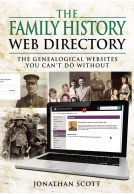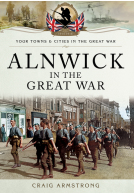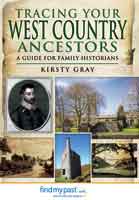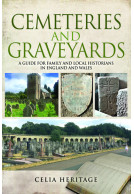Tracing Your British and Irish Ancestors (Paperback)
A Guide for Family Historians
Imprint: Pen & Sword Family History
Pages: 186
Illustrations: 30
ISBN: 9781473853256
Published: 26th September 2016
(click here for international delivery rates)
Order within the next 3 hours, 26 minutes to get your order processed the next working day!
Need a currency converter? Check XE.com for live rates
| Other formats available | Price |
|---|---|
| Tracing Your British and Irish… ePub (29.2 MB) Add to Basket | £4.99 |
Finding a way into the sources for British and Irish family history can be a daunting task if you live overseas. That is why this introductory book will be so valuable for anyone who is trying to trace their British and Irish ancestors and gain an understanding of their lives and the world they knew.
In a clear and easily accessible fashion Jonathan Scott takes the reader through the key stages of research. He describes the principal sources and gives advice on how best to explore them. His handbook provides the building blocks for anyone who is entering this fascinating and rewarding field.
He guides the newcomer through the first steps of research, then focuses on the national, regional and local archives and other sources in Britain and Ireland. He outlines their history, giving advice on how to get precise and revealing information from them. Parish records and the records left by nonconformists, Jews and Catholics are covered as well as wills and probate, migration, working lives, poverty, crime, debt, divorce and adoption.
The author has taken an interesting approach to distinguish this volume from those already available. Whilst it will inevitably be of use to those UK residents who are embarking on the compilation of their “family tree”, Mr Scott aims this text at those fledgling researchers who live overseas. This means that as he describes the principal sources and gives advice on how best to explore them, the suggestions inevitably involve the use of websites. That might result in the text rapidly becoming outdated. But obsolescence is not yet an issue with it, given that every single URL therein that I tested opened successfully.
Federation of Family History Societies
Mr Scott guides the new researcher through the basic - civil registration, the census and parish registers - research sources, before considering many of the records to be found in the local, regional and national archives of the UK and Ireland. He outlines the context of the records and why they were created, and advises the family historian on their use. In a lengthy section entitled “Going Further”, the author then discusses wills and probate records, deeds, the records of coroners’ inquests and a multitude of documents connected with the military, employment, poverty, crime, debt, migration, divorce and adoption.
This volume is fully indexed and comprises some 186 pages, which are presented in a soft, laminated cover. Illustration is by means of monochrome photographs, facsimile documents and images of webpages. A separate bibliography is not included, as the many suggestions for further reading are embedded into the text.
This is a practical guide for those who are just beginning to explore their family history. Jonathan Scott's book is not the first in its field nor will it be the last but resources and available records are constantly evolving so even family historians of long standing may find something of interest within the covers. The book is well set out with chapters on "Beginnings,“ "National and Regional Records" and "Going Further." There is a useful section covering further resources including websites, coroners’ inquests and deeds. A comprehensive index is included. This is a useful publication especially for those new to family history.
Rotherham FHS
A lot of people may currently be interested in tracing Irish ancestors in particular since Brexit, so the inclusion of Ireland may help it to sell well. I think this book deserves a place on the reference shelf of anyone tracing ancestors today, it is stuffed with information, and an overwhelming amount of it consists of websites. What a massive amount of work must be going on to make it all available at one's laptop. The advice is clear and sensible: start with your immediate relations - keep very full notes, including blind alleys, remember memories are untrustworthy. Soon we are into the complexities of administrative divisions. If you had never heard of baronies or cantriefs or didn't know the difference between towns and townlands, here you will find out.
Friends of the National Archives
A helpful section focuses on finding people via their work; it turns out there is a website giving archaic names of jobs and another listing all the Unions that existed.
This book tells us that we are in a wonderful new world where any keyword approach has a chance of success. And I hope its users occasionally pause to reflect on how many thousands of hours by diligent workers it is taking to make all this information available at the click of a mouse.
This is an idea practical guide for beginners, particularly those living overseas, with an introduction to all the major research resources and how to use them.
B&A FHS Journal No. 166
There's no shortage of beginners' guides to family history out there, although it's been a while since we've seen a new one. And here is one, by an established writer in the genealogy field. The premise that differentiates this one is that it is aimed at people around the world wanting to trace their British and Irish roots.
Your Family History, December 2016
In general, Tracing Your British and Irish Ancestors covers the basic information required by a complete beginner to research their family history. It is rich with useful website addresses.
WDYTYA? Magazine - October 2016 - reviewed by Paul Blake
Yes, it is thin in places (for example the military section), but with so much that now needs to be covered in any general guide to family history research, perhaps it is not surprising, nor a criticism.
About Jonathan Scott
Jonathan Scott is a freelance writer specializing in family history. He is a former deputy editor of Family History Monthly and has penned the ‘Best Websites’ column for Who Do You Think You Are? Magazine since 2007. He also writes the magazine’s monthly ‘Around Britain’ feature and compiles the end-of-year look-ahead at developments online. In addition to his work in family history, he has compiled Collecting Children’s Books and Rare Book Price Guide


















